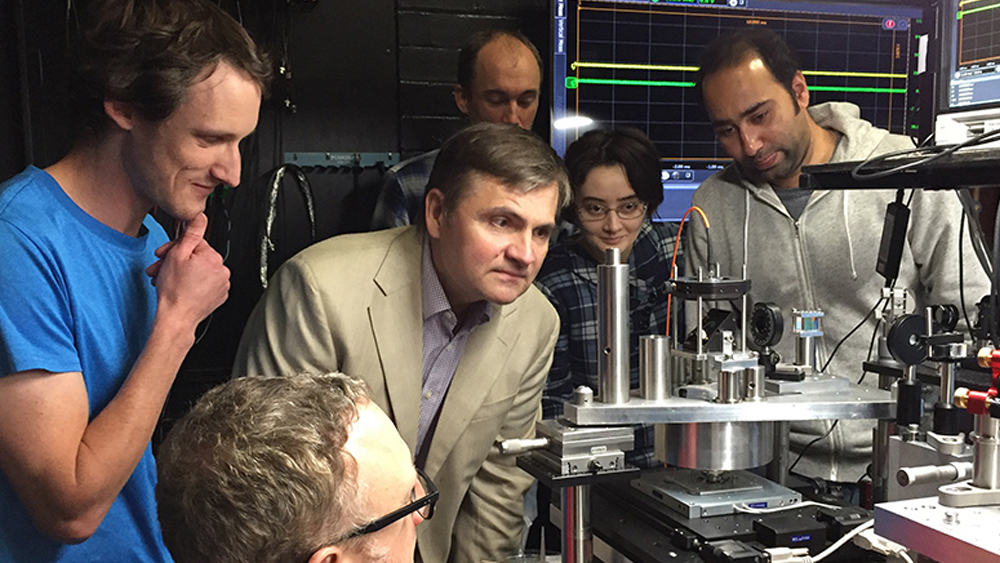
Dr. Vladislav Yakovlev, professor in the Department of Biomedical Engineering at Texas A&M University, received the 2021 Harold E. Edgerton Award in High-Speed Optics from the International Society for Optics and Photonics (SPIE).
“It is a major award by a large photonics society, and I am extremely fortunate to be recognized by this award,” Yakovlev said. “In a sense, it is almost a lifetime award, since it is awarded for the work I was doing for the past 25 years.”
Yakovlev’s career reflects an enormous amount of pioneering work across high-speed optics. Some of those achievements include his work in optical parametric amplifiers of white-light continuum, widely adapted as broadly tunable sources of ultrashort laser pulses used for high-speed imaging and spectroscopy; using shaped optical pulses for spectroscopy and imaging, including the first experimental demonstration of coherent quantum control of molecular dynamics; and applications of ultrashort laser pulses such as cornea reshaping, broadband coherent anti-Stokes Raman scattering, random Raman lasing and imaging, and nonlinear Brillouin imaging.
Yakovlev received his Ph.D. in physics and quantum electronics from Moscow State University in 1990. When he arrived in the U.S. in 1991, he initially worked at a startup, Novatec Laser Systems, where he built a femtosecond Ti:sapphire oscillator amplifier system and used it for cornea ablation, discovering what is now known as Bladeless LASIK. A SPIE member since 1995 and a fellow since 2014, Yakovlev’s commitment to SPIE has included serving as an editorial board member of the Journal of Biomedical Optics, a program committee member for multiple SPIE conferences, his outreach participation with SPIE student chapters, and more than 160 contributions to SPIE journals and conference proceedings.
Dr. Rick Trebino, chair of Ultrafast Optical Physics at the Georgia Institute of Technology, said he has known Yakovlev for the last quarter-century.
“During his career, Vlad has made several seminal contributions to the field of ultrafast nonlinear optical spectroscopy, resulting in high-profile publications and more than 4,500 citations,” Trebino said. “He has taught a number of courses with emphasis on optics, optical spectroscopy and applications of optics, and has trained numerous graduate students who are now working in the optics industry and academia around the world.”